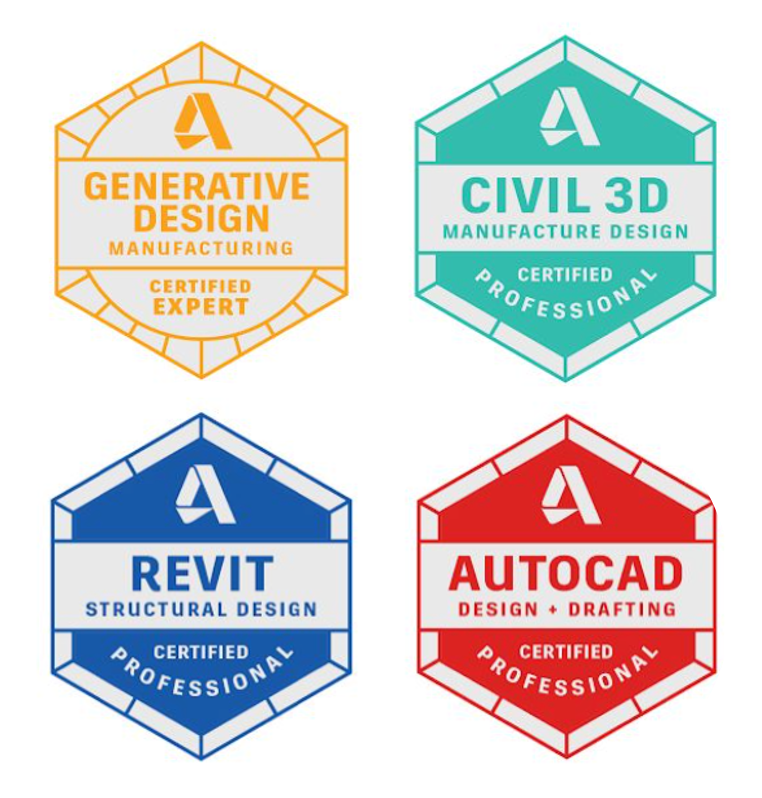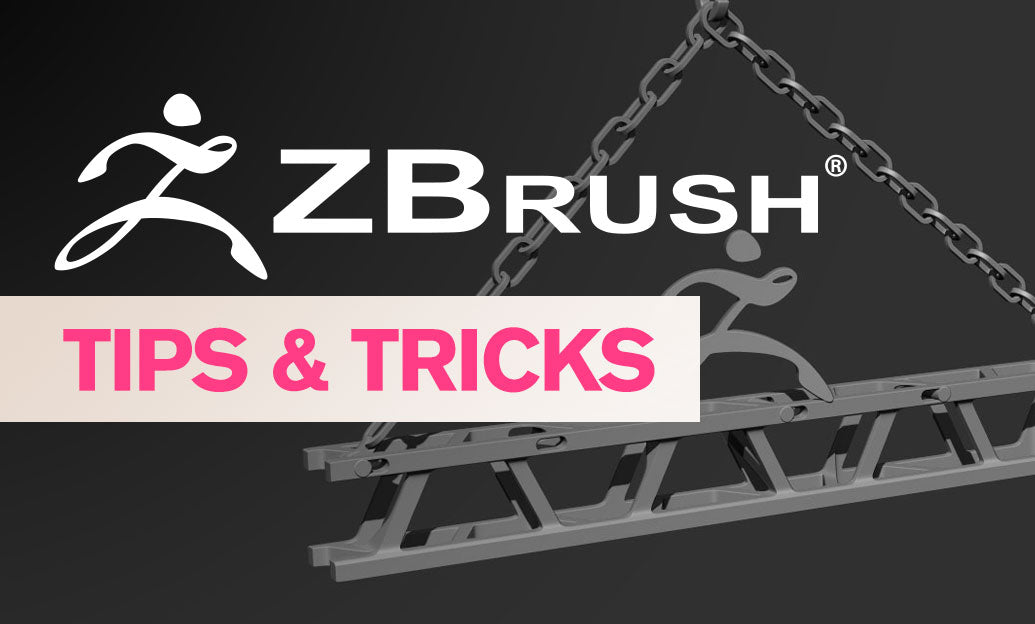Your Cart is Empty
Recent Articles
- ZBrush Tip: Mastering the Displace Noise Brush for Enhanced Detailing in ZBrush
- Revit Tip: Optimizing Revit Projects: Custom Graphic Styles for Enhanced Clarity and Communication
- AutoCAD Tip: Enhancing Dimension Precision with Dimjogline and Dimspace Commands in AutoCAD
- V-Ray Tip: Enhance Rendering Efficiency with V-Ray Proxy Setup Techniques
- Design Software History: The Evolution of Color Rendering in Product Visualization: Milestones, Influences, and Technological Advancements in Design Software History
- Bluebeam Tip: Export PDFs to Word or Excel in Bluebeam Revu for Enhanced Editing and Data Manipulation
- Cinema 4D Tip: Advanced Techniques for Creating Realistic Materials in Cinema 4D
- Rhino 3D Tip: Efficient Management of Large Mesh Models in Rhino 3D
- Augmented Reality's Transformative Impact on Design Prototyping
- Revit Tip: Optimizing Revit Project Unit Management for Consistency and Accuracy
The Future of Work is Now: New Autodesk Certification Program Helps Today’s Workforce Prepare for the Age of Automation
November 17, 2020
From Autodesk News: Lisa Campbell

The World Economic Forum estimates 1 billion people will need to be reskilled by 2030. This global skills gap represents a looming crisis across all industries we serve. Customers have been telling us for years that a retiring workforce coupled with a lack of younger workers entering their industries is leaving jobs unfilled. Add to that the emergence of automation increasing the need for workers to develop a new set of skills, there are now more new roles and new jobs than ever before opening up without the talent to fill them.
To address this challenge, Autodesk is developing lifelong learning solutions to help workers keep pace by learning new skills and earning professional credentials that will create opportunity. The Future of Work has already arrived, and automation is commonplace across our industries. We’re here to help our customers get the professional skills they need to thrive.
Today we’re launching the Autodesk Certification Program, comprising eight new industry-aligned learning pathways and certifications to partner with professionals on their lifelong learning journey, with additional certifications and courses arriving next year. This program is designed to empower emerging and seasoned professionals to build and validate their skills so they can achieve their learning and career goals. We’re offering certifications geared toward both specific products, like the “Revit Structure” certification, and specific workflows and industry roles, like the “Fusion 360 Mechanical Design” certification for mechanical engineers and machinists. Our new role-based offerings will continually evolve to support emerging trends and changing industry needs so workers can be confident they’ll always be current.

The new Autodesk Certification Program was designed to be flexible and self-paced. Users can access the single sign-on platform online at any time that works for their schedule.
For more than 15 years Autodesk has partnered with workforce training centers to offer product-specific certification through in-person exams, but as technology and automation have advanced careers, our need to also evolve our learning and certification offerings has become paramount. I had the chance to talk with Jaime Perkins, who leads learning strategy at Autodesk, about our efforts to reimagine certification.
“We know technology like AI is driving massive changes in the industries we serve, and those changes are having a huge impact on workers. We saw an 800% increase in traffic to our self-paced learning resources as soon as COVID-19 hit and knew it was the right time to accelerate the advancement of our program. With this new platform we’re taking a new approach to certification—one that integrates self-paced skills attainment into everyday work, connects workers to a broader community, and pushes them forward on a lifelong learning journey.”
New role-based certifications show greater capability
Increasingly, we’re seeing that the way our tools are used is determined by the job of the individual. For example, there’s no one job that requires someone to use every single function in a tool. Our new role-based offerings account for these nuances so someone can become certified in a specific role, like mechanical engineer, versus a specific product, like Fusion 360.
Our role-based learning paths and certifications help workers develop, capture, and communicate new competencies and experiences in ways that employers understand and value. To start, our new role-based certifications will be aligned with Fusion 360, with a focus on core workflows in the industry. This includes an emphasis on CAD, CAM, design for manufacture and the industry’s first generative design certification.
Learning pathways prepare workers for both certification exams and careers
With the Autodesk Certification Program, we’ve created self-paced, modular learning that shows each user’s unique learning pathway, ultimately leading to certification. We realize learning is personal and designed a program to meet a range of skill levels, workflow applications, roles, and career ambitions, so our customers can embark on the learning journey that’s right for them—at their own pace, on their own time. Courses will vary in focus, covering everything from skill building and workflows, to preparation for specific certification exams.

Once learners complete a series of courses or earn a certification, they’ll unlock personal badges that can be incorporated into resumes, portfolios and professional networking sites to demonstrate their achievements to peers and employers.
Training infrastructure for businesses
Last year we partnered with Monitor Deloitte to explore the challenges underpinning the skills gap and how to help workers adapt and succeed in the age of automation. One key insight from the research was that companies must shorten the distance between learning and work, effectively embedding learning into the workplace by enabling workers to study new skills on the job. The challenge is that most businesses aren’t large enough to have the infrastructure for training systems.
Read about our recent push for workforce development in COVID-19 legislation
Autodesk certifications and learning pathways can help companies reskill their existing professionals through embedded, timely learning. This helps ensure their existing talent base has the skills to do the work to keep their firms thriving. In addition to bolstering existing workforces through reskilling, industry certifications can help companies make more targeted hiring decisions by looking for candidates who have passed our industry-aligned certification exams.
Reskilling is critical for economic success
This coming year, as people continue to work remotely or require increased safety in the physical workspace because of COVID-19, the use of digital tools and automation will continue to accelerate. This means the skillsets required to fill changing and emerging roles will be new for many professionals and job seekers. Reskilling and upskilling – along with the successful digital transformation of organizations – is critical to the success of the global economy. At launch, for each Fusion 360 user who successfully completes one of our new certifications after AU, we will extend a matching donation to Humanmade, an Autodesk Foundation partner organization. Humanmade’s Next Generation Manufacturing Program is San Francisco’s first advanced manufacturing workforce development training program aimed at training low-income Bay Area residents for the Future of Work.
Hear from Autodesk about upskilling employees to prepare for the workforce of the future
Automation technology is the key driver to help businesses and society meet the demands of a growing and urbanizing global population. We recognize that it also contributes to job disruption—and that Autodesk has an opportunity to help workers adapt. We are committed to helping our current and future customers thrive in this era of automation and societal transformation. Our new certification program is the latest way we’re helping facilitate lifelong learning for the most in-demand skills of the future– to foster a resilient, equitable, and prosperous workforce.
For more information on the new Autodesk Certification Program, please visit here.

Browse Autodesk Products
The world's leading innovator of 2D and 3D graphics technology
Also in Design News
Subscribe
Sign up to get the latest on sales, new releases and more …





